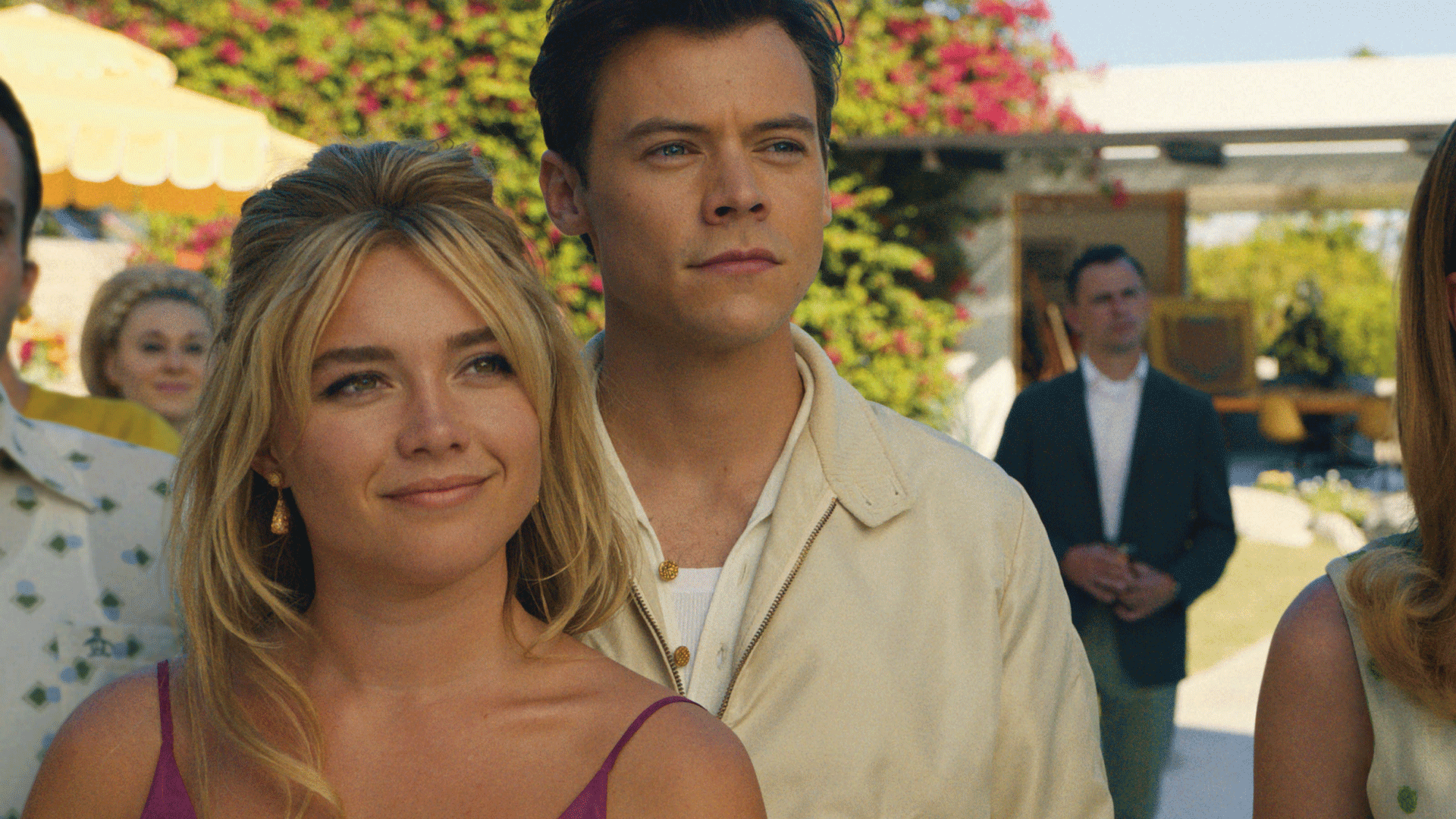In a ballet studio, a group of housewives ditch their immaculate white aprons for rigid tights and bodices. Their legs fold and unfold as clockwork, arms framing their slender figures. “Remember ladies, there is beauty in control,” reinforces Shelley (Gemma Chan), their instructor, as she corrects small flaws in execution, pinching back tummies and fixing slightly crooked postures.
It is fitting that ballet is the hobby of choice for the pristine housewives of The Victory Project, a secluded community nested within the arid grounds of the Californian desert. Transplanted straight from the ’50s, The Victory Project is composed of a select group of couples who live by the traditional values of WASP Americana. Wives coated in hairspray wake up every morning to a routine as choreographed as their dance concerts, splashing a dash of oil on the frying pan – bacon first, eggs second. They lovingly slice toast in half – two triangles, of course, and blow soft kisses in the air as their husbands jet off for another day of work, an entire afternoon of domestic errands ahead.
The well-oiled mechanisms of The Victory Project are at the heart of Olivia Wilde’s Don’t Worry Darling, the follow-up to her acclaimed directorial debut Booksmart (2019). Here, the actress-turned-director does away with comedy, opting instead to harness dystopian tropes to examine gender politics. At the centre of the story is Alice (Florence Pugh), one of the many pruned wives in the community. All is dandy in Alice’s life: at the end of a long day of cooking and cleaning and lightly gossiping with other wives, she uses the same hands that polish garden-facing windows to rip away the iron-pressed shirt of her beloved husband Jack (Harry Styles).
Such a rose-tinted reality surely can’t last, and Alice’s bubble is burst by Margaret (KiKi Layne), a one-time friend whose erratic behaviour leads her to seclusion. Margaret’s crime was to ask questions in a place where one is encouraged to rest comfortably in complacency, an act at first foreign to the well-mannered Alice. But then, slowly at first then all at once, everything feels a bit off, the confinements of her reality no longer soothing but claustrophobic. Soon Alice is the pariah, the world she perceived through pastel colours violently crumbling under her.
In this construction of paranoia, Don’t Worry Darling deviates from its obvious companion, Frank Oz’s 2004 satirical dark comedy The Stepford Wives, based on Ira Levin’s book, where women are shaped into unbridled servitude amongst the lavish gardens of a similarly manicured neighbourhood. Whereas Oz’s cult classic explores the idea of misogynistic subjugation through witty humour and hyperbole, Wilde opts for growing dread, slowly unmasking the terrifying truth behind the Californian haven as Alice goes from backyard gatherings to uncanny parties straight out of Stanley Kubrick’s Eyes Wide Shut.
To encompass this grisly crescendo, Pugh taps into the qualities that earned her wide praise for her turn in Ari Aster’s Midsommar (2019). She goes from adoration to disgust in a measured beat, her face contorting to the realisation of her status as a prisoner in an inescapable hell. Alongside her, superstar musician Styles is earnest in his effort, but all his cartoonish performance does is adorn the nuances of Pugh’s. The pop star laughs a little too loud, cries a little too hard, enunciates a little too stiffly, delivering a Tommy Wiseau-esque turn that renders him unable to tune into the wavelength of his fellow cast members (which include Chris Pine embodying the mannerisms of a cult leader and comedian Nick Kroll as one of the schmuck husbands).





